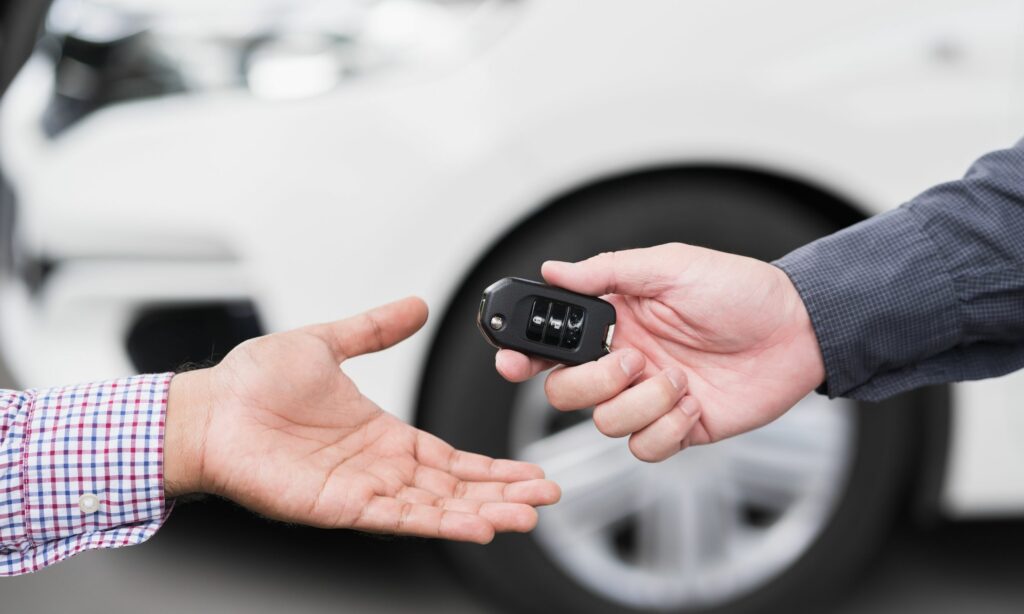Buying a used car from a dealership can be a smart choice, offering a wide selection of vehicles and potential warranty options. However, it’s essential to approach the process with caution to avoid common pitfalls that can lead to dissatisfaction or overpaying. By understanding these pitfalls and taking proactive steps, you can make a more informed decision and find the right used car for your needs and budget.
In this blog post, we’ll discuss the common pitfalls to avoid when buying a used car from a dealership. From researching the dealership to understanding the sales process and avoiding overpaying, we’ll provide valuable insights and tips to help you navigate the process with confidence. So, if you’re considering buying a used car from a dealership, read on to learn how to avoid these common pitfalls and make a smart purchase.
Researching the Dealership
Before buying a used car from a dealership, it’s crucial to research the dealership thoroughly. This step can help you avoid potential issues and ensure you’re dealing with a reputable establishment. Here are some key aspects to consider when researching a dealership:
- Customer Reviews: Reading customer reviews can provide valuable insights into the dealership’s reputation and customer service. Look for reviews on websites like Google, Yelp, and the dealership’s social media pages to get a sense of the experiences other buyers have had.
- Dealer Reputation: Check the dealership’s reputation with organizations like the Better Business Bureau (BBB) or local consumer protection agencies. Look for any complaints or issues that may indicate a problematic history.
- Inventory Selection: Browse the dealership’s inventory online to see if they have the make and model you’re interested in. A dealership with a diverse selection of vehicles may offer you more options to choose from.
- Facility Visit: Consider visiting the dealership in person to get a sense of their professionalism and the condition of their facilities. A well-maintained dealership is more likely to take good care of their vehicles and customers.
- Licensing and Accreditation: Ensure that the dealership is properly licensed and accredited by relevant authorities. This can provide added assurance that they adhere to industry standards and regulations.
- Word of Mouth: Ask friends, family, or colleagues for recommendations if they have purchased a car from a dealership. Personal referrals can be a valuable source of information.
By researching the dealership before making a purchase, you can gain valuable insights into their reputation and customer service. This can help you avoid potential issues and ensure you’re dealing with a reputable establishment when buying a used car.
Understanding the Sales Process
When buying a used car from a dealership, it’s important to understand the typical sales process to navigate it effectively. The process usually starts with test drives, where customers can assess the condition and performance of vehicles they’re interested in. Following this, there may be vehicle inspections, either conducted by the dealership or by the buyer’s trusted mechanic, to ensure the car is in good condition.
Once a suitable vehicle is found, negotiations begin. It’s crucial to do thorough research to determine a fair price based on the car’s condition, market value, and any additional features. Being prepared to walk away if the dealership isn’t willing to negotiate can give you leverage in the negotiation process.
After agreeing on a price, the next step is completing the necessary paperwork to finalize the purchase. This includes signing a contract, arranging financing if needed, and transferring ownership of the vehicle.
Dealerships may also offer warranties or additional services, such as extended warranties, maintenance plans, or vehicle protection packages. It’s essential to consider these carefully to determine if they’re worth the additional cost. Understanding the sales process at a dealership can help you navigate it more effectively and avoid potential pitfalls, ensuring a smoother buying experience overall.
Avoiding Overpaying
Avoiding overpaying is crucial when buying a used car from a dealership. To prevent this, start by researching the market value of the make and model you’re interested in using online resources. This will give you an idea of what a fair price should be based on the car’s condition, mileage, and features.
Additionally, set a budget before visiting the dealership and stick to it. This will help you resist sales tactics and emotional impulses that could lead to overspending.
Don’t forget to consider additional costs such as taxes, registration fees, and dealer fees, as these can significantly impact the total cost of the car.
Finally, be cautious of add-ons like extended warranties or vehicle protection packages, as some may be unnecessary or overpriced. By following these tips, you can avoid overpaying for a used car and ensure you get a fair deal from the dealership.
Understanding Warranty Options
When buying a used car from a dealership, understanding the warranty options available is essential. Dealerships may offer different types of warranties, including manufacturer warranties and extended warranties, each with its own set of benefits and limitations. Manufacturer warranties typically cover certain repairs and services for a specific period after the purchase of the car. Extended warranties, on the other hand, provide additional coverage beyond the manufacturer’s warranty but often come with additional costs.
Before deciding on a warranty, carefully review the terms and conditions to understand what is covered and what is not. Consider factors such as the length of coverage, deductible amounts, and any exclusions or limitations. Additionally, weigh the cost of the warranty against the potential savings on repairs to determine if it’s worth the investment.
Overall, understanding the warranty options available when buying a used car from a dealership can help you make an informed decision and ensure that you’re adequately protected against unexpected repair costs.
Inspecting the Vehicle
Inspecting the vehicle thoroughly before making a purchase is crucial when buying a used car from a dealership. While dealerships typically inspect their vehicles before putting them up for sale, conducting your inspection or having a trusted mechanic do so can provide added assurance. Look for signs of damage or wear, both inside and out, and ensure that everything is in working order.
During the inspection, check the condition of key components such as the engine, transmission, brakes, and tires. Look for any leaks, unusual noises, or warning lights that could indicate underlying issues. Additionally, take the car for a test drive to assess its performance and handling. Pay attention to how it accelerates, brakes, and corners, and listen for any unusual noises.
By inspecting the vehicle thoroughly, you can identify any potential issues before making a purchase and avoid buying a car with hidden problems.
Equipping Yourself When Buying A Used Car
In conclusion, buying a used car from a dealership can be a rewarding experience if approached with caution and diligence. By researching the dealership, understanding the sales process, avoiding overpaying, considering warranty options, and inspecting the vehicle thoroughly, you can navigate the process more effectively and avoid common pitfalls.
Remember to stay informed, set a budget, negotiate the price, and consider all costs before making a decision. If you’re in the market for a used car, consider visiting Inside Car Guys for a wide selection of vehicles and expert advice. By following these tips, you can ensure a smoother buying experience and find a reliable used car that meets your needs and budget.





